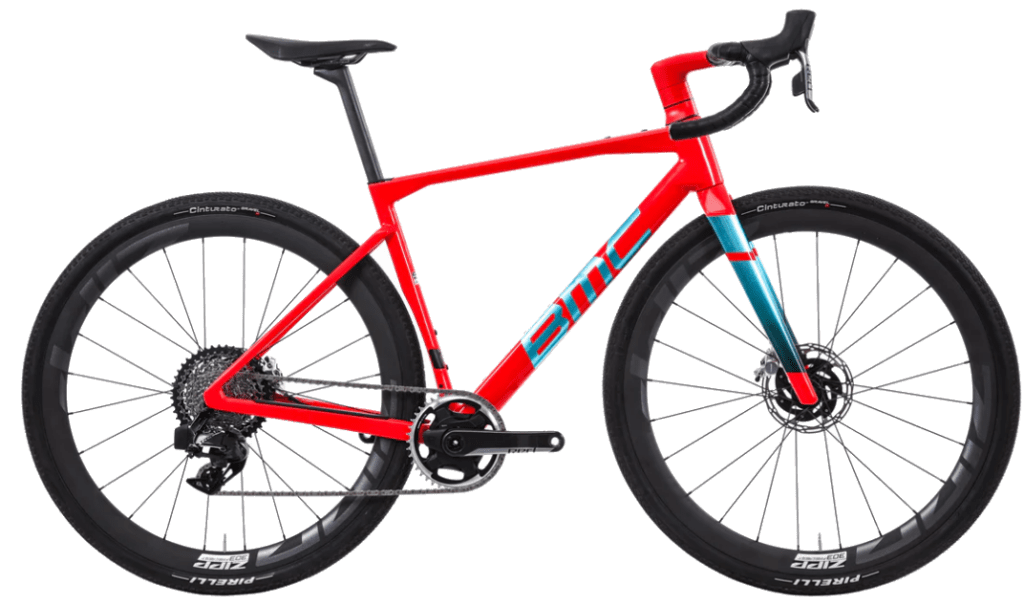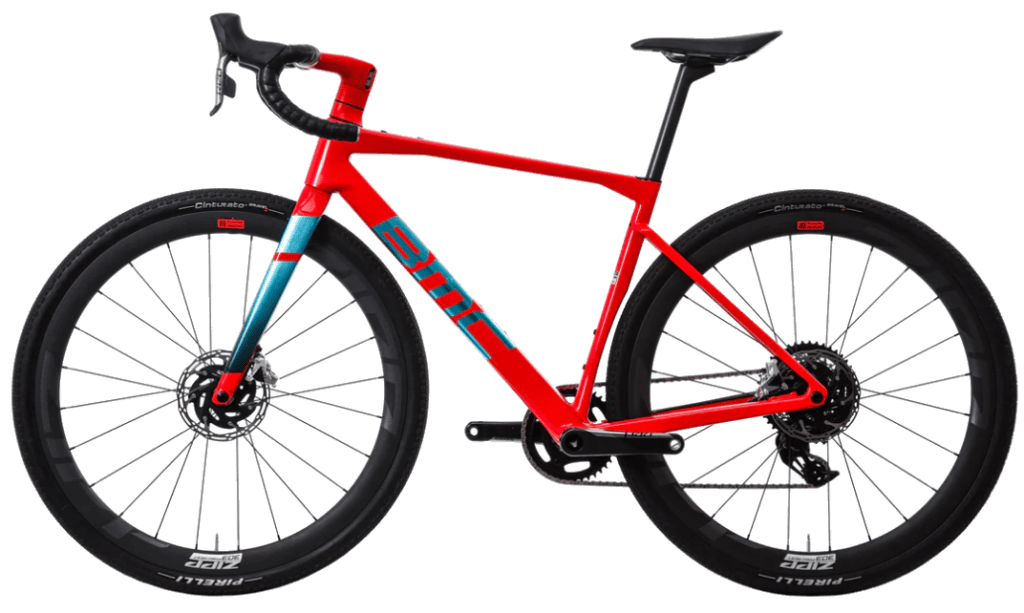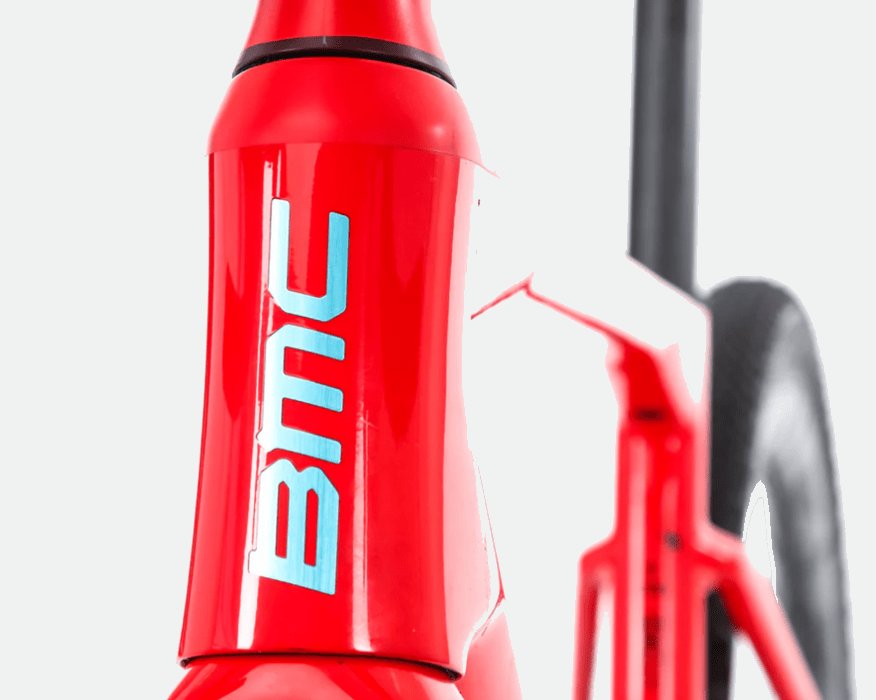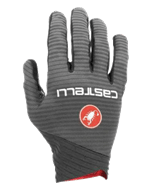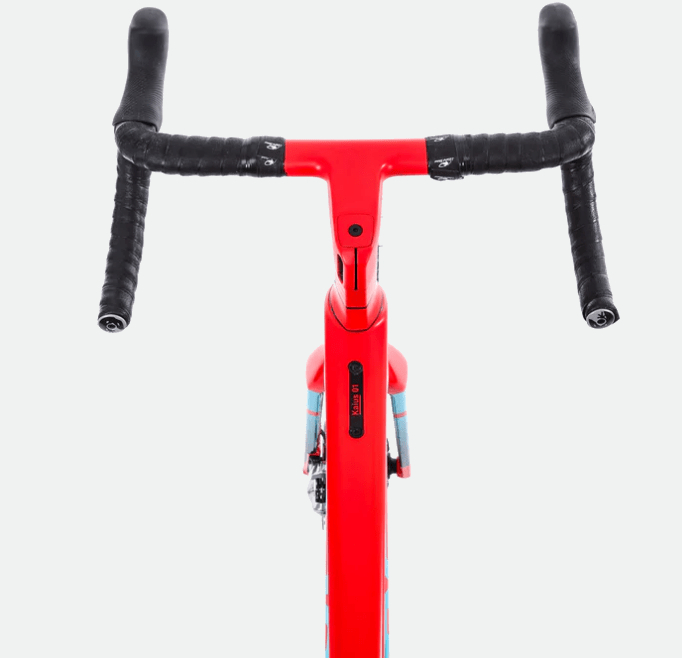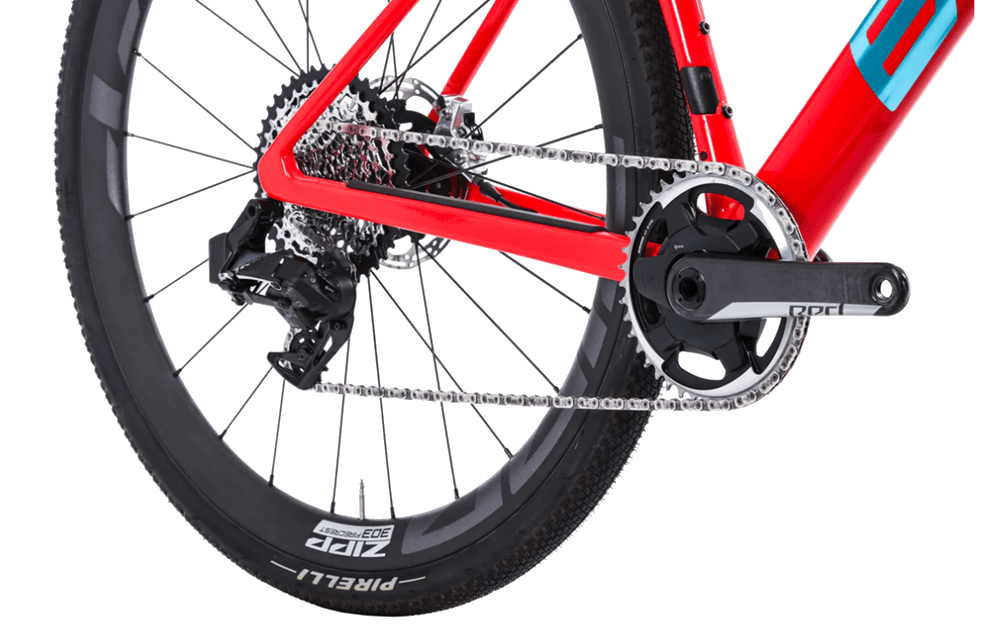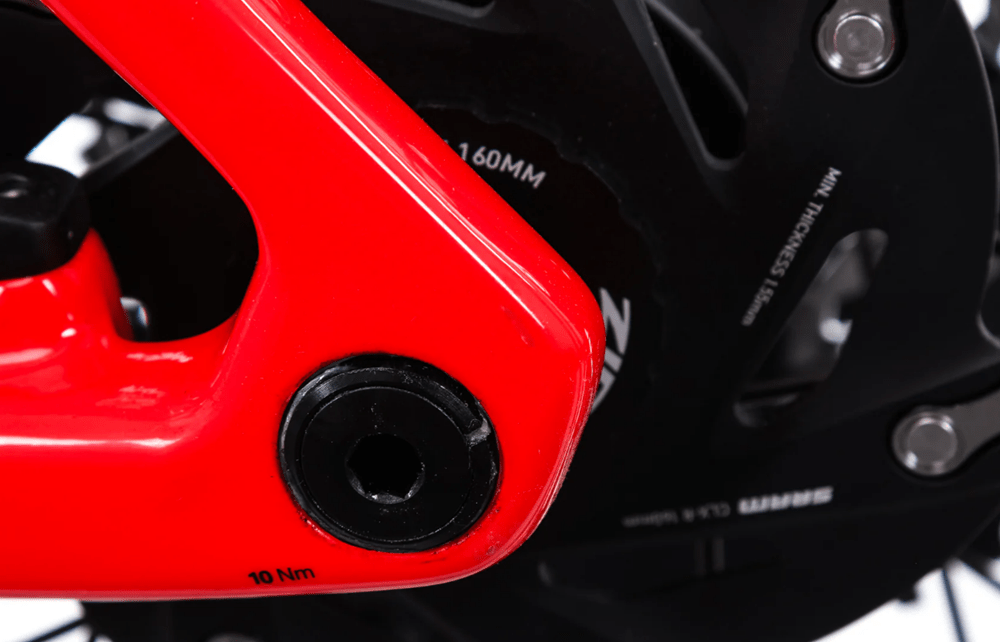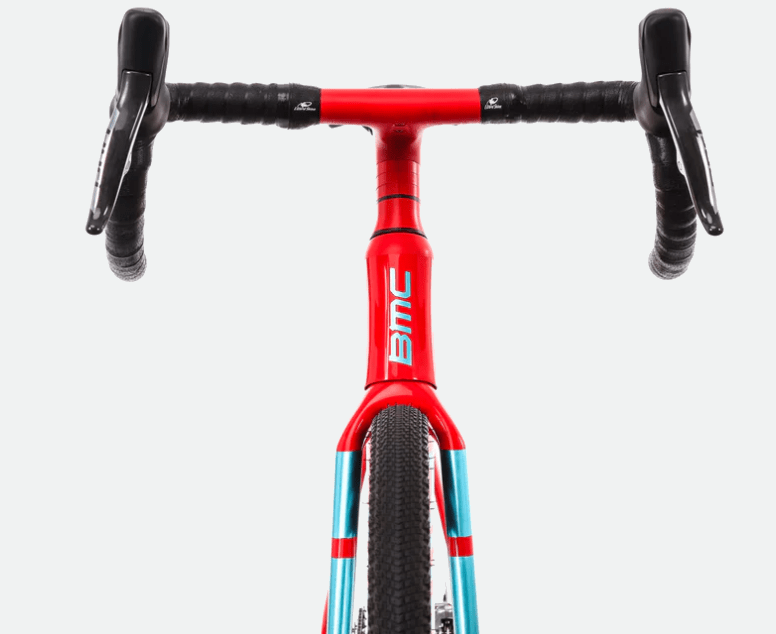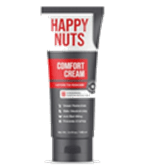Contents
BMC Kaius 01 LTD: A Premium Gravel Race Machine

SPECIAL THANKS TO THEPROSCLOSET.COM FOR THE IMAGES CONTAINED INTHISS ARTICLE!
The 2024 BMC Kaius 01 LTD represents a significant advancement in gravel bike engineering, combining Swiss precision with race-oriented design principles. This competition-focused platform integrates aerodynamic optimization with off-road performance specifications. The frame establishes quantifiable benchmarks in gravel racing dynamics, where measured performance gains directly impact race outcomes.
The structural foundation of the BMC Kaius integrates T1000 and T800 high-modulus carbon fiber construction with competition-specific geometry parameters. Frame specifications include a 72.5-degree head tube angle and 73.5-degree seat tube angle, optimizing handling precision across variable terrain conditions. The chassis maintains a race-oriented stack-to-reach ratio of 1.47, positioning riders for optimal power output and aerodynamic efficiency.
The frame manufacturing process utilizes Automated Fiber Placement (AFP) technology, achieving a fiber volume fraction of 65% and void content below 0.5%. This precision layup method ensures consistent mechanical properties across all frame sizes while minimizing manufacturing variations to within ±1% of target specifications.
Performance and Features: Engineered for Speed and Efficiency
The BMC Kaius utilizes advanced carbon fiber layup techniques, achieving a documented frame weight of 910 grams (size 54cm). Engineering teams implemented computational fluid dynamics (CFD) analysis through 1,000+ iterations to optimize tube profiles, resulting in a 12% reduction in aerodynamic drag compared to traditional gravel frame designs.
Castelli 6.1 Unlimited: Ultra-lightweight protection for your epic gravel adventures LEARN MORE
Advanced material composition includes strategic placement of high-tensile strength carbon sheets in critical load-bearing zones. The layup schedule employs varying fiber orientations: 0° for tensile strength, ±45° for torsional rigidity, and 90° for compression resistance. This multi-directional carbon architecture results in a frame that exhibits 62 N/mm bottom bracket stiffness while maintaining sub-15 IU vertical compliance values.
Aerodynamic testing protocols at the GST facility in Germany utilized both mannequin and live rider testing scenarios. Data collection occurred across yaw angles from -20° to +20° in 2.5° increments, with velocity variations from 20 km/h to 60 km/h. Results demonstrate a 22% reduction in system drag compared to traditional round tube profiles.
The BMC Kaius features proprietary TCC Race compliance technology, functioning through specifically engineered frame sections and providing 10mm of vertical compliance without compromising lateral stiffness. Laboratory testing demonstrates vibration reduction of 25% at frequencies between 20-60Hz, correlating with common gravel road surfaces. Impact resistance testing confirms frame integrity after 100,000 cycles at 40 joules.
Components: Technical Specifications and Performance Metrics
The BMC Kaius 01 LTD integration system includes SRAM Red eTap AXS HRD groupset, offering 12-speed electronic shifting with a 10-44T cassette range. The system provides shift response times of 150 milliseconds and maintains consistent performance across 1,000+ hours of operation. Hydraulic disc brakes utilize 160mm front and 140mm rear rotors, delivering 25% more stopping power than traditional 140/140 configurations.
Braking performance data indicates consistent modulation across temperature ranges from -5°C to 40°C, with maximum deceleration rates of 5.2 m/s² achieved from 40 km/h without brake fade. The hydraulic system maintains these performance metrics after extended testing protocols simulating 200km of aggressive terrain riding.
The integrated Aerocore Design incorporates internal cable routing through a proprietary ICS Carbon stem and headset interface. Wind tunnel data indicates a 6-watt reduction in drag at 40 km/h compared to external routing solutions. The downtube and seat tube utilize truncated NACA airfoil profiles, optimized for yaw angles between 0-20 degrees, with documented drag coefficients of 0.021 at race-specific velocities.
Quality Assurance and Testing Methodology
The BMC Kaius undergoes comprehensive non-destructive testing protocols including ultrasonic inspection and digital radiography to ensure structural integrity. Quality control measures maintain:
- Automated optical metrology with tolerances of ±0.1mm across all critical dimensions
- Resin content analysis maintaining 32% ±2% across all structural elements
- X-ray diffraction analysis of carbon fiber alignment with maximum deviation of 2 degrees
- Thermal imaging during stress testing to identify potential structural anomalies
- Shore D hardness measurements exceeding 82 on all load-bearing surfaces

Advanced manufacturing protocols integrate:
High-modulus T1000 fibers (modulus >300 GPa) in primary load paths
Intermediate-modulus T800 fibers for impact resistance zones
Specialized high-strain fibers in targeted compliance regions
Nano-enhanced resin systems with improved interlaminar shear strength.
Happy Nuts: Comfort and freshness where it matters most. LEARN MORE
The BMC Kaius validation process includes:
Full-scale wind tunnel testing with live rider data acquisition
Particle image velocimetry analysis of airflow characteristics
Real-world validation through GPS-based field testing protocols
Computational fluid dynamics verification using multiple solver methodologies.
Overall Impression: Performance Analysis and Technical Summary
The BMC Kaius 01 LTD demonstrates measurable performance advantages across key metrics. Wind tunnel testing indicates a 15-watt reduction in total system drag at 40 km/h compared to benchmark gravel platforms. Frame deflection analysis shows optimal stiffness-to-weight ratios, with bottom bracket deflection under 0.7mm during 1,200-watt power outputs.
Laboratory testing protocols validate performance across temperature ranges from -15°C to 45°C, humidity levels between 20-95%, and sustained vibration frequencies matching typical gravel terrain profiles. Finite element analysis simulations validate structural integrity under extreme loading conditions, with safety factors exceeding industry standards by 20%.
The development process implements systematic quality control protocols, ensuring consistent performance characteristics across production units. Each frame undergoes extensive testing regimens, including precision measurement verification and structural integrity validation.
With a system weight of 7.4 kg (size 54cm, without pedals), the complete package delivers documented improvements in aerodynamic efficiency, power transfer, and terrain management capabilities. The $12,999 price point reflects the integration of advanced materials, precise manufacturing processes, and extensively tested component specifications required for elite-level gravel racing applications.
 |
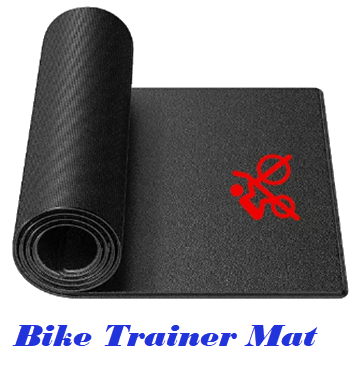 |
We earn from qualified Amazon purchases with NO cost to you. ANY item that you need or were going to purchased anyway through any of our links, helps support this site. Thank you for your support!
If you enjoyed learning about this week’s featured bicycle, don’t miss out on more classic bike goodness! Visit our website at classicjapanesebicycles.com for an extensive collection of timeless Japanese bikes and their unique stories. Plus, check out our YouTube channel, Bicycle Restoration Man, for detailed restoration videos and showcases of our finished projects. Subscribe and join our community of bike enthusiasts!


